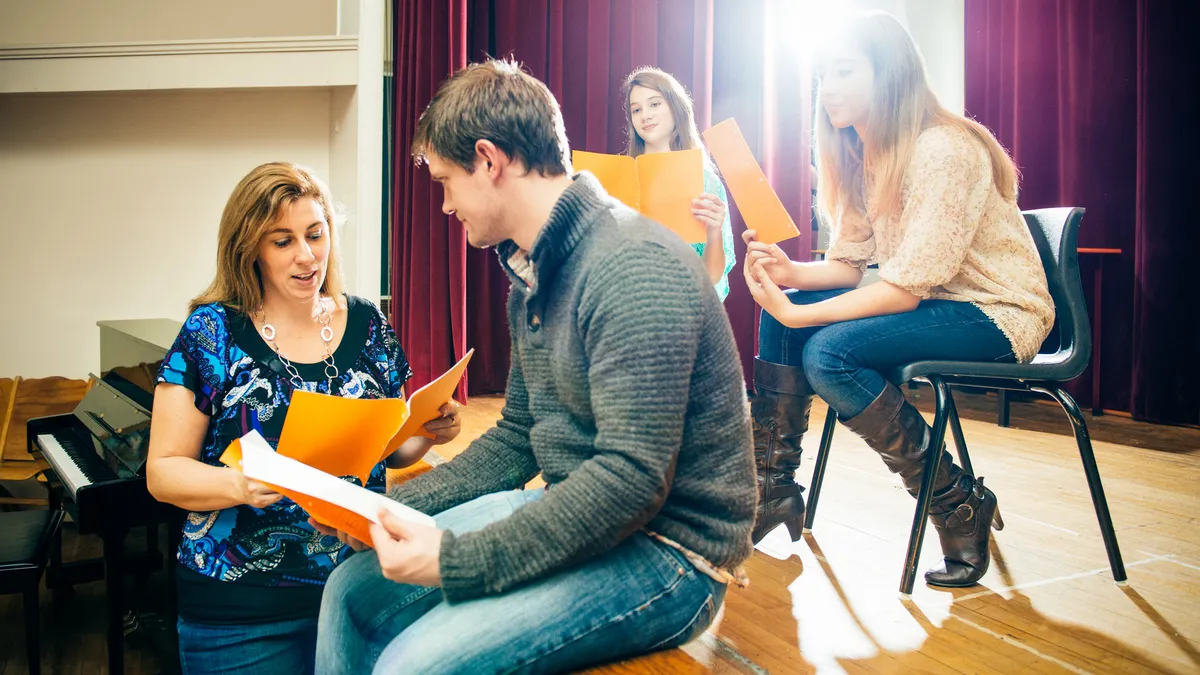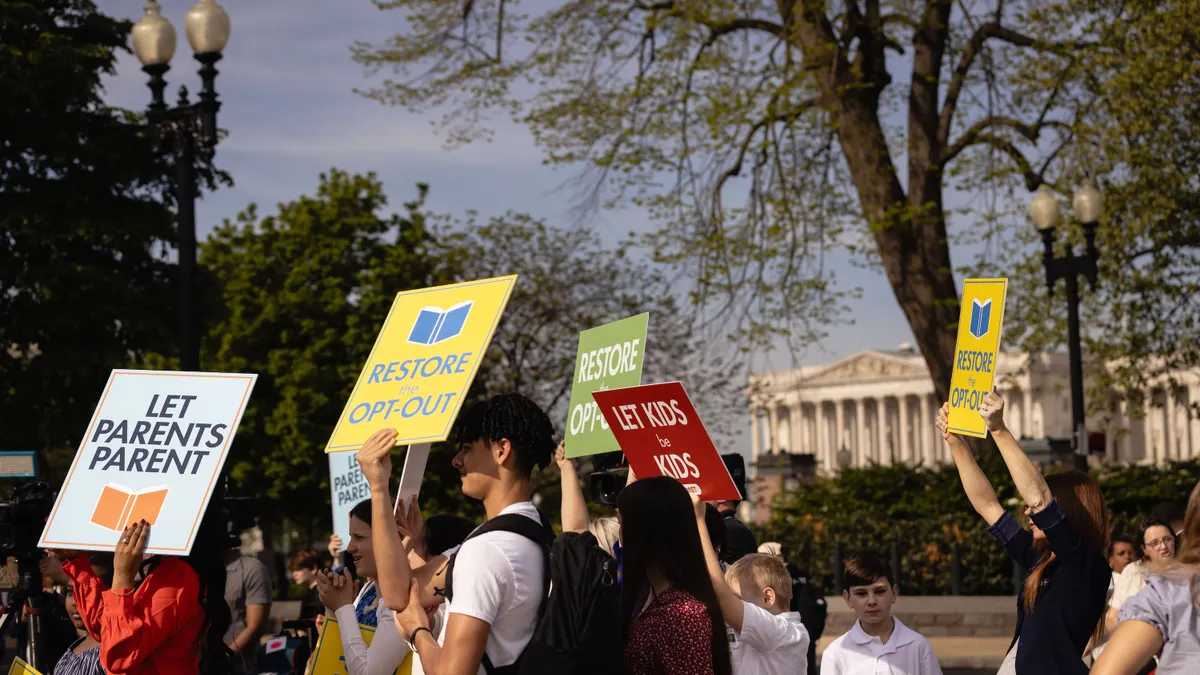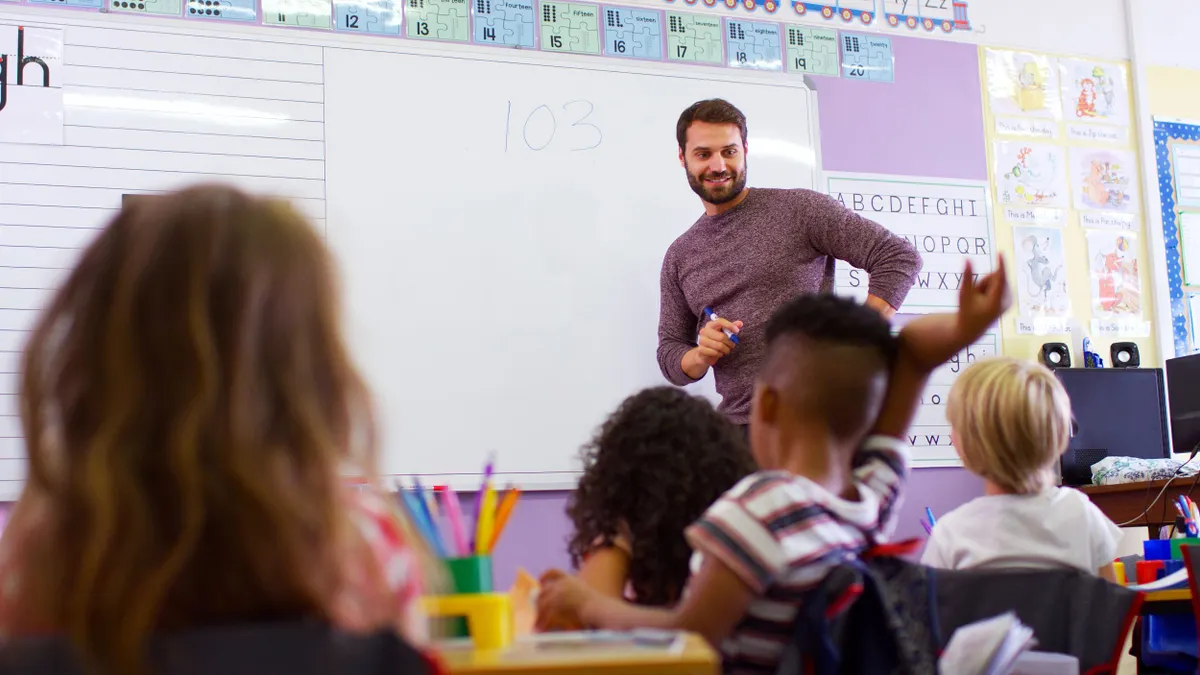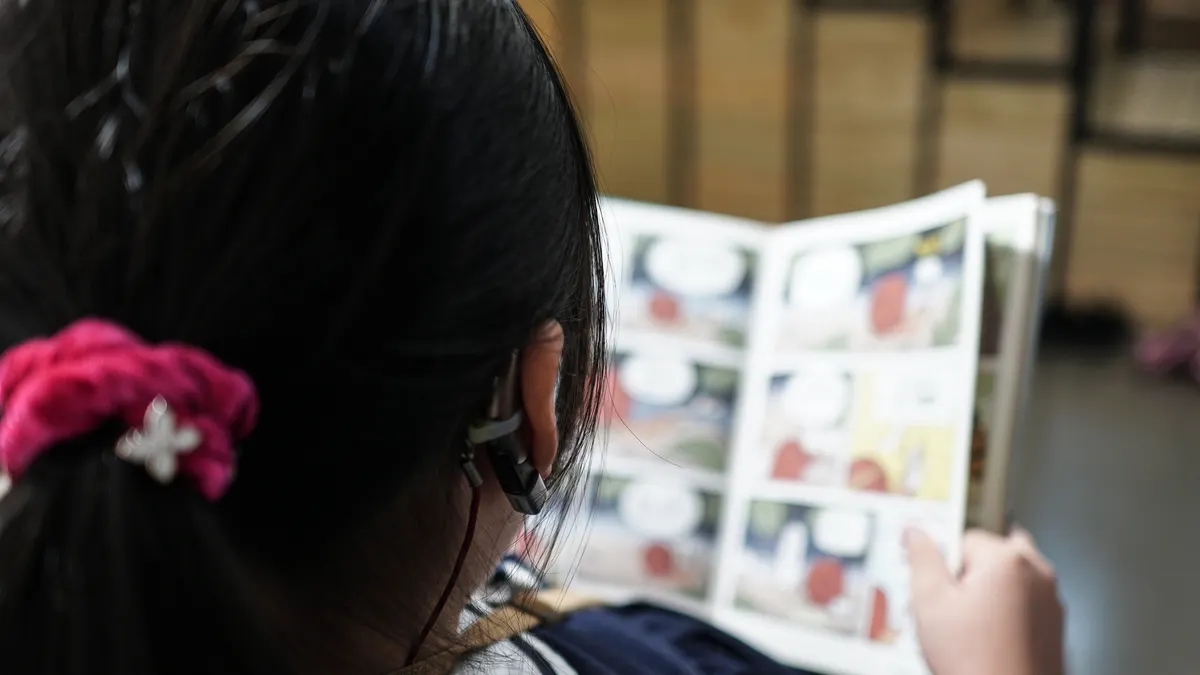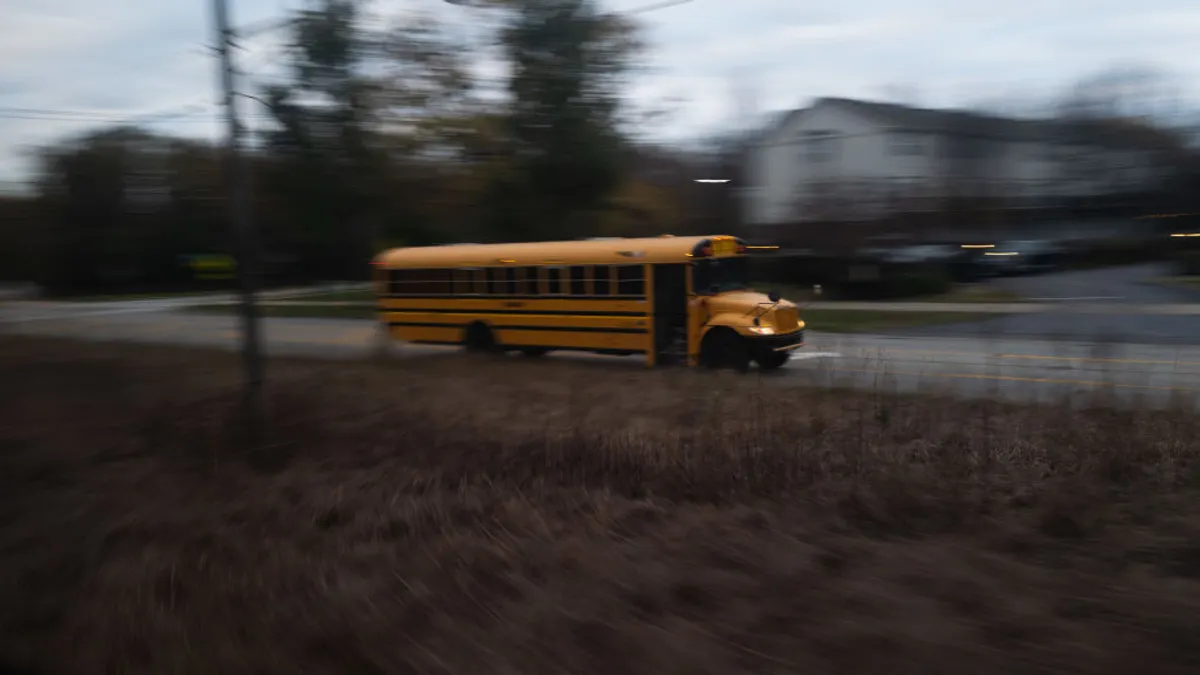When the bullying prevention side of the Special Olympics Unified Champion Schools program became clear to the Lansing Public School District in Michigan, an initial launch quickly expanded from five schools to the entire district.
Students can join monthly Lunch Bunches, where all learners, with and without cognitive and physical disabilities, can meet up for monthly events such as trips to bowling alleys and swim classes, or participate in unified sports teams. But the lunch program in particular, which started at the elementary level, was one that helped the district make the decision to move forward with expanding to all of its schools.
“Special education students were more accepted in the hallways because general ed students had their back,” said Anne Goudie, special education athletic director for Lansing and a Special Olympics Unified Schools consultant. “It became very evident, very quickly, that it could be bigger than we thought it could be.”
Nationwide, 7,623 schools participate in the program, which educators credit as having an influence on building inclusivity on their campuses. With a variety of activities and associated perks, the initiative has proven effective in boosting inclusivity engagement across entire student bodies, from varsity athletes signing up to participate to attendance issues disappearing on event days.
Polar plunges, dances and t-shirts
In the Lansing Public School District, the Unified Champion Schools t-shirt is a coveted item, occasionally designed by students and personalized with schools' names and colors. Parents often ask if they can buy them, though only students who are in the program and the staff who work with them are given one.
Goudie said a district study found on days students had Unified Champion Schools activities, there was an increase in attendance, too.
“Special education students were more accepted in the hallways because general ed students had their back.”

Anne Gloudie
Special education athletic director for the Landsing Public School District
At Buffalo High School in Minnesota, the student-led Unified Club plans and runs inclusive school dances, an annual assembly called Words Matter, and even a polar plunge that saw students jump into an outdoor mobile pool last April as the weather started to warm — a bit.
To Jennifer Heebink, the adaptive physical education teacher for Buffalo High School and Buffalo Community Middle School, the program has been “literally a win for every single kid and parent,” she said. “Especially during the pandemic, which has been so hard for me as a teacher, it’s been good for my soul and my students’ souls.”
Online tools
T-shirts and polar plunges aside, there are also free online Unified Classroom resources schools can tap to expand inclusivity among students. More than 130 lessons are available, with over four hours of video content, and all of the virtual lessons are adaptable, meaning educators can copy them, replace images and even increase the font size, said Kaleigh Vogan, an education advisor for Special Olympics North America Unified Champion Schools and former educator.
“Whatever they want to do, they can make it their own,” said Vogan.
Every month, a new theme drops based on social-emotional learning or the core values of Special Olympics. The theme for October, dovetailing with National Bullying Prevention Month, was titled “Belonging.” Vogan believes that focus has been more important since the pandemic, when students with physical and cognitive disabilities — many of whom already report feeling loneliness and exclusion — felt even more isolated at home.
“We need to find ways to build connection and give students a sense of value to make them feel included and seen,” said Vogan.
Peer influence matters
Peers can have a heavy influence on inclusivity. In Texas' Kingsville Independent School District, for example, all five schools are certified as Unified Champion Schools. And students in the unified track team at H.M. King High School go out for pizza together and have bonded over working toward the same goal — bettering their team, said Michelle Carrales, the district's Special Olympics coach.
“It makes everyone on equal ground,” said Carrales. “The students realized the other kids want the same as they want. They want to train, and they want to be successful.”
That connection — students talking and influencing their peers — is a core reason many of the materials available through the Unified Classroom portal are hosted by youth leaders, including the online tutorials created for the October Belonging activities.
Ultimately, Vogan said, when information is designed for students and delivered by other young people who are also studying for tests and competing on school teams, the message is more impactful than if delivered by an adult.
“They want to see it and hear it from someone who understands what they’re going through,” said Vogan. “This is a curriculum that could be forced. But if it’s coming from someone they identify with or look up to, they influence one another.”






 Dive Awards
Dive Awards


